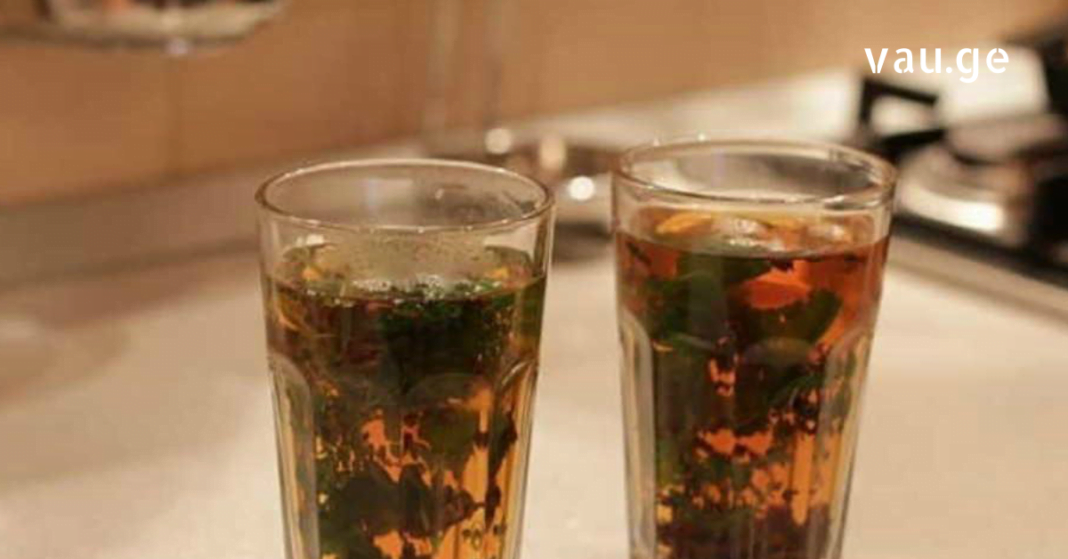Air pollution is one of the most harmful factors affecting our health today. One of the more noticeable symptoms of exposure to polluted air is an unexplained, persistent cough that may come with dark-colored phlegm. These symptoms are not random—they are your body’s way of reacting to and attempting to expel foreign particles it perceives as invasive or dangerous.
Phlegm is the body’s natural defense mechanism. It is produced in the respiratory system to trap and help eliminate dust, dirt, and harmful microorganisms. While coughing is commonly associated with the cold or flu, it can also be triggered by a weakened immune system, sudden changes in weather, or nasal congestion.
Regardless of the cause, you don’t always need pharmaceutical medications to ease a cough. Natural remedies, particularly herbal teas, have been trusted for generations and can often bring fast and lasting relief. Here are five highly effective and easy-to-make teas that can help soothe a cough and support your recovery.
1. Thyme Tea
Thyme is an incredible herb that provides strong support for the lungs and the entire vocal and respiratory system. It is a natural anti-inflammatory and is especially effective at relieving sore throats and coughs. But it doesn’t just mask symptoms—it targets the root of the problem.
Thanks to its antibacterial properties, thyme acts as a natural antibiotic. If your cough is caused by a bacterial infection, thyme can help your body fight it off more effectively. This tea is especially useful when dealing with chest congestion and lingering bronchial inflammation.
How to prepare:
Steep one teaspoon of dried thyme in a cup of boiling water for 10 minutes. Strain, and drink warm.
2. Lemon, Honey, and Cinnamon Tea
This combination is a classic home remedy, and for good reason. Lemon is a powerful natural antibiotic and is packed with vitamin C, which helps the immune system. However, due to its acidity, lemon can sometimes cause a burning sensation in the throat—this is where honey comes in.
Honey not only soothes the throat and balances the acidity of lemon, but it also has potent antimicrobial properties. It coats the throat and creates a natural barrier against irritants. Cinnamon adds even more power to the mix, helping to break up mucus while enhancing the overall anti-inflammatory effect.
How to prepare:
Squeeze half a lemon into hot water, add a teaspoon of honey, and stir in a small piece of cinnamon stick. Let it sit for a few minutes before drinking.
3. Peppermint Tea
Peppermint is one of the best herbs for respiratory relief. It contains menthol, which acts as a natural decongestant. Peppermint tea helps thin thick mucus, making it easier to expel and helping to clear the airways.
If your cough is accompanied by difficulty breathing or a “tight chest,” this tea can help significantly. It also cools inflamed tissues and soothes irritation in the throat.
Pro tip: For maximum benefit, add a cinnamon stick while steeping the tea.
How to prepare:
Steep a handful of fresh peppermint leaves (or a peppermint tea bag) in boiling water for 5–7 minutes. Optionally, add cinnamon for a stronger effect.
4. Rooibos Tea with Lemon
If your cough is related to allergies, rooibos tea may be your best choice. Rooibos is naturally caffeine-free and loaded with antioxidants and minerals. It has strong antihistamine effects, which can help calm the immune system’s overreaction to allergens.
By adding lemon, you enhance the tea’s vitamin C content and overall immune-boosting power. This makes it particularly helpful during allergy season or when recovering from a cold or flu.
How to prepare:
Steep a rooibos tea bag in boiling water, then add fresh lemon juice and a bit of honey for extra soothing effects.
5. Ginger Tea with Honey
Ginger is a well-known superfood with a wide range of medicinal properties. As an anti-inflammatory, it works wonders in reducing swelling in the throat and respiratory system. It also improves blood circulation, which helps the body recover faster.
Ginger tea is particularly good at breaking down mucus and promoting drainage from the lungs. When combined with honey, the result is a powerful tea that addresses both the discomfort and the cause of the cough.
How to prepare:
Boil a few slices of fresh ginger in water for 10–15 minutes. Remove from heat, strain, and add honey while the tea is still warm.
Final Thoughts
Any of the herbal teas listed above can be used to treat both occasional and chronic coughs. They are safe for most people and have very few side effects—unless you are allergic to a specific ingredient. For best results, choose the tea that most closely matches the cause of your cough (e.g., allergies, congestion, sore throat) and drink it consistently for a few days.
Natural remedies may not replace medical treatment when it’s needed, but they can provide powerful, gentle support for your body’s healing process. Plus, they’re simple, affordable, and quick to prepare right at home.


















